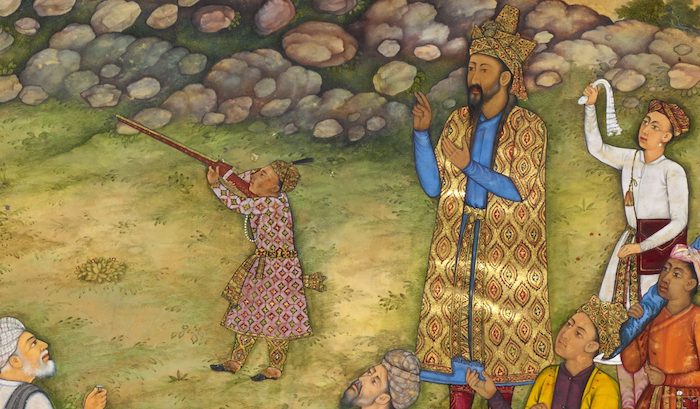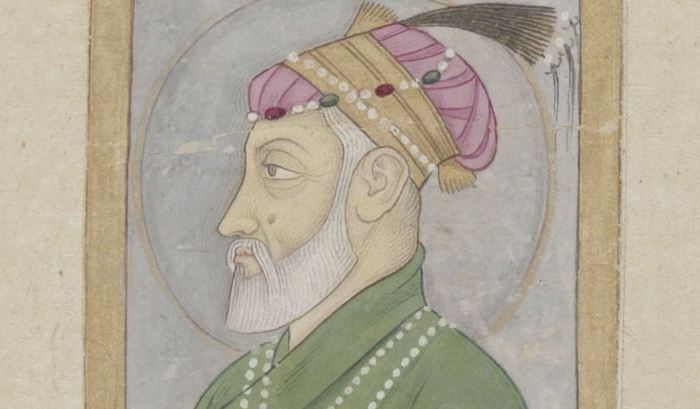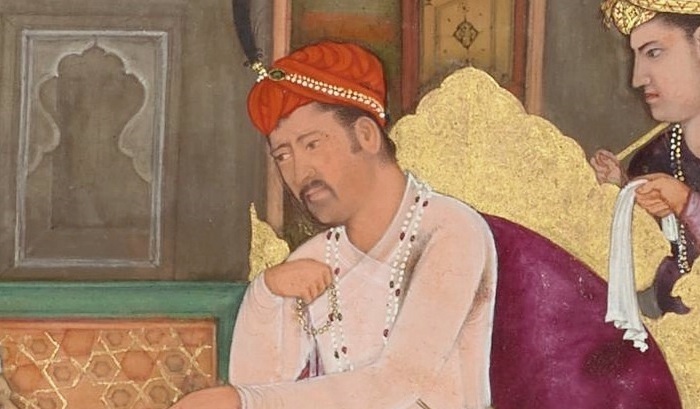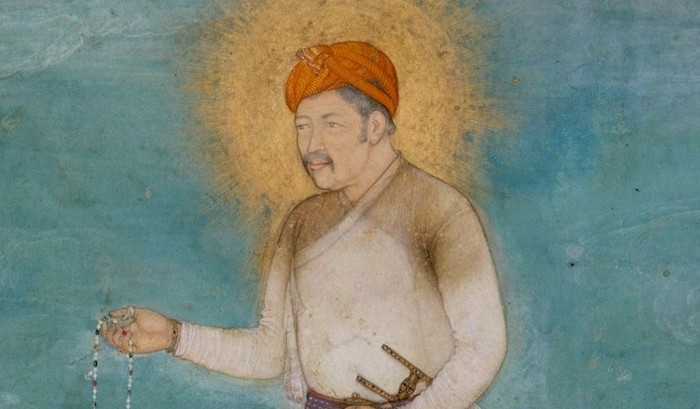Back in 2020, I wrote two posts about character foibles of Roman emperors that made good quirks for NPCs. Now I’m going to do it again with the Mughal emperors of India, who were just as quirky and gameable! Skipping over Babur, the first Mughal emperor (who has his own five-part series), this first post will cover Humayun and Akbar (ruled 1530-1605), and the next post will cover Jahangir, Shah Jahan, and Aurangzeb (ruled 1605-1707). Let’s meet these memorable, NPC-able figures!
This post is brought to you by beloved Patreon backer Colin Wixted. Thanks for helping keep the lights on! If you want to help keep this blog going alongside Colin, head over to the Patreon page – and thank you!

Humayun, the second Mughal emperor, was a generally feckless ruler who was saved by good advisors and good luck. He lost most of his father’s empire early in his reign to a dynasty based in Bihar whose rulers did much to improve the empire Humayun later regained by happenstance. His brothers persistently rebelled, and Humayun was only able to obtain the loyalty of the nobility by solemnly swearing to obey their guidance on all matters of policy. He wasn’t quite a figurehead, but he was certainly further along that axis than any of the other Mughal emperors. I wrote about him a little bit last year.
Early in his reign, Humayun ran his court according to astrological principles. Each day of the week was themed to the celestial body associated with it: the state business Humayun undertook, the colors he wore, and the nature of his decisions. On Sunday we wore yellow and handled state affairs. On Monday, he wore green and was at ease. Tuesday was for Mars: the red-colored day of wrath and vengeance. Punishments handed out on Tuesdays were atypically severe. These astrological fancies did not survive the civil wars. After those tribulations, Humayun was much more serious.

One story that’s super illustrative of Humayun’s character comes from the war against his Bihar-based nemesis, Sher Khan (who later styled himself Sher Shah after he took Delhi from the Mughals). The armies of Humayun and Sher Khan were encamped on opposite sides of the Ganges River. Each was waiting for the other to make the first move, since their cannon emplacements and the difficulty of crossing the river put whichever side attacked first at a severe disadvantage. Humayun’s ambassador visited Sher Khan and found him digging a trench (something fancy Humayun was definitely not doing). The two sat down in the dirt and talked, eventually hammering out an agreement that would let Sher Khan keep what he’d conquered, but would let Humayun save face. Sher Khan would announce that he held these lands as provinces granted to him by his recognized overlord, Humayun.
Also, Humayun insisted upon winning a make-believe battle against Sher Khan. Humayun’s army would advance and Sher Khan’s army would fall back, letting Humayun “win the battle” without bloodshed. Sher Khan fell back several miles as promised, and Humayun advanced. But now Humayun was outside his fortifications, unprotected by the Ganges and not expecting treachery. Sher Khan’s army fell upon Humayun’s and annihilated it. Humayun only escaped because his water-bearer, Nizam, filled his water-skin up with air and gave it to Humayun to use as a floatation device to get back across the Ganges without drowning. Humayun was so grateful he declared he’d place Nizam upon the throne at Delhi. When they returned to the capital in defeat, rather than planning his next move, Humayun actually did place Nizam upon the throne. The water-bearer stayed on the throne for somewhere between two hours and two days, giving orders and frustrating Humayun’s courtiers.
So what are some cool foibles we can pull from Humayun’s character and apply to different NPCs? He’s obsessed with astrology and living his life according to astrological principles. He’s so unfocused at his real job that his subordinates forced him to promise to do whatever they told him to. He’s trusting, especially of his enemies. He’s quick to make grandiose promises, and he’s very serious in following through on them.

Humayun’s son, Akbar, was a very different sort of ruler. He was one of those rare monarchs able to ram through important reforms without introducing instability. He was also a policy wonk, focused on the fine details of state affairs. And Akbar made religious toleration national policy. He married Hindus (the Mughals were famously Muslim), folded his new Rajput relatives into the imperial administration, abolished the customary taxes on non-Muslims, and adopted aspects of Hindu dress. Hardliners in Akbar’s administration feared he’d apostatized, but he had too firm a grip on power for them to do anything about it.
Akbar’s childhood was spent in the military, and he remained intensely physical for the rest of his life. He once rode an elephant directly through the wall of a house (like the Kool-Aid Man) to surprise bandits hiding within. Another time, he faced a tiger on foot and slew it with a sword. He loved riding atop male elephants who were fighting other male elphants. When one of Akbar’s advisors attempted to murder the emperor’s prime minister, Akbar punched the assassin in the face (eyewitnesses reported it looked like the advisor had been hit with a mace), knocking him out, so the assassin could be thrown over the parapets to his death.
Akbar was obsessive about record-keeping. He set up a records department to write down everything that happened at court. Two clerks followed the emperor to document his comings and goings, his moments of sleeping and waking, and everything he did or said.
Yet despite his record-keeping, Akbar was barely literate. Like his ancestor Timur before him, Akbar led a court where scholarship and learning were prized, yet had documents read to him. As a young pupil, Akbar was too much of a hellion to focus on his lessons (though it’s also possible he was dyslexic). As a grown man (and emperor), it would have been inappropriate for him to read or write inexpertly, so instead he gave dictation and had documents read aloud. And he was read to constantly! Akbar, like Charlemagne, was a voracious audiobook reader before there were audiobooks.
Later in his reign, Akbar tried to create a new sect of Islam, the Din-i-Ilahi. Though vague in its theological specifics, the sect definitely held that Akbar was in some way special. Depending on the audience and what was convenient in the moment, the sect might have held that Akbar was simply the most learned mufti or an outright manifestation of God Himself. Akbar was cheeky about the whole thing. He had the mint stop putting his name and title on coins and instead stamp the Takbir (“Allahu akbar”), an important phrase that usually means “God is the greatest” but could also be read as “Akbar is God”. When an outraged sheikh pointed this out to Akbar, the emperor pretended that he’d never noticed the phrase could be read this way. Akbar’s new sect never spread beyond his closest friends and did not outlive him.

For Akbar’s NPC-able foibles, we’ve got his immense physicality; him being followed around by record-keepers to document everything he did; him being an incredibly well-read man who technically rarely read; and his cheeky new religion.
–
Make sure you don’t miss a blog post by subscribing to my no-frills, every-other-week mailing list! I also have a signup that’s only for big product releases!
Looking for material for your game tonight? My back catalog has hundreds of great posts, all searchable and filterable so you can find something from real history or folklore that fits exactly what you need! Posts older than a year are behind a very cheap paywall – only $2/month!
Come follow and chat with me on social media! On Mastodon I’m @MoltenSulfur@dice.camp. On Twitter, I’m @moltensulfur. On Blue Sky, I’m @moltensulfur.bsky.social.
Enjoy this post? Consider sharing it on social media, or maybe emailing it to a GM friend of yours. The social media infrastructure that creators relied upon to grow their audiences is collapsing. You sharing my stuff helps me stay relevant and ultimately helps me get paid for my time.
Check out Shanty Hunters, my award-winning TTRPG about collecting magical sea shanties in the year 1880, then singing them at the table with your friends. The lyrics of the shanties come to life and cause problems for you and for the crew of the ship you sail aboard. It’s up to you to find clues in the song and put things right!
Source: The Great Moghuls: India’s Most Flamboyant Rulers by Bamber Gascoigne (1971, revised 1998)







